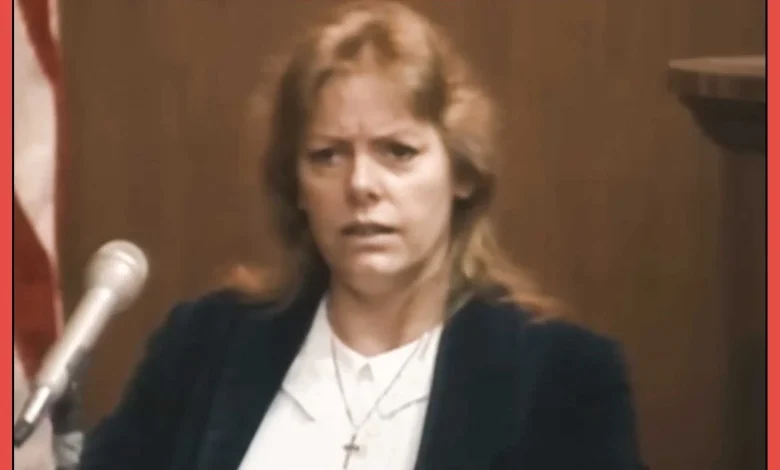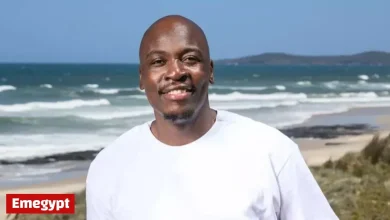Aileen Wuornos: The Life, Crimes, and Legacy Behind Netflix’s ‘Queen of the Serial Killers’

Quick Read
- Aileen Wuornos murdered at least six men in Florida between 1989 and 1990.
- She claimed self-defense, citing her history of abuse and trauma.
- Wuornos was arrested in 1991 and executed by lethal injection in 2002 at age 46.
- Her life story is explored in the Netflix documentary ‘Aileen: Queen of the Serial Killers’.
- Her motives remain disputed; the documentary features rare interviews with Wuornos herself.
The Early Life of Aileen Wuornos: Trauma, Survival, and Isolation
Aileen Wuornos’s story is one that forces us to confront the uncomfortable intersections of childhood trauma, poverty, and violence. Born on February 29, 1956, in Troy, Michigan, Wuornos’s earliest years were marked by abandonment and abuse. Her mother left when she was just a baby, and her father—convicted of a child sex crime—died by suicide in prison (Los Angeles Times). Raised by her grandparents, Wuornos later alleged that her grandfather was physically abusive, a claim echoed in interviews with childhood friends.
By age 13, Wuornos’s life had already taken a dark turn. She became pregnant, reportedly after being raped by her grandfather’s friend, a fact supported by archival case details and interviews in the documentary «Aileen: Queen of the Serial Killers» (PrimeTimer). Sent to a home for unwed mothers, she gave birth to a son in 1971, whom she was forced to give up for adoption. Shortly thereafter, she was expelled from her grandparents’ house, left to fend for herself in the woods nearby—her descent into survival sex work had begun.
Florida, Addiction, and the Path Toward Violence
As Wuornos moved through her teenage years, the effects of her trauma compounded. She hitchhiked across the country, drank heavily, and used drugs, supporting herself through prostitution and odd jobs. In 1976, she arrived in Florida and briefly married a much older man. The union lasted just over a month, ending amid allegations of domestic violence from both sides.
Legal troubles soon followed. Wuornos was arrested in 1981 for robbing a convenience store at gunpoint, serving a year in prison. After her release, she drifted through Florida’s underbelly, eventually forming a relationship with Tyria Moore, a 28-year-old woman. Their partnership, according to police and documentary interviews, was both a source of emotional support and a complicating factor in Wuornos’s descent into violence (Time).
The Murders: Motives, Confessions, and Controversy
Between late 1989 and 1990, Wuornos murdered at least six men—possibly seven—along Florida highways. The victims were typically middle-aged motorists whom she met at truck stops or while hitchhiking, often luring them with the promise of sex. The first body, Richard Mallory, was discovered in December 1989. More cases followed, each adding layers of fear and fascination to the growing media coverage.
What drove Wuornos? The Netflix documentary features rare interviews with Wuornos herself, conducted by artist Jasmine Hirst in 1997. Wuornos repeatedly claimed that she acted in self-defense, asserting that her victims had tried to rape or kill her. “I had to kill them,” she told police in a taped confession. “It was self-defense. It was, like, ‘Hey, man, I gotta shoot you, ’cause I think you’re gonna kill me.’” But the documentary also reveals moments where Wuornos admits to lying about certain details, such as sodomy in the Mallory case, suggesting that her narratives were often inconsistent and perhaps shaped by the intense psychological pressures she faced.
Director Emily Turner, in interviews featured in the film, points out that Wuornos seemed to both reject and embrace her infamy. “You guys are going to make millions off of this,” Wuornos whispers to Hirst, seemingly aware of the spectacle surrounding her case. Turner suggests that Wuornos’s need to be heard—and the attention she received as a serial killer—may have played into her psyche. Still, as Turner cautions, “Wuornos is an incredibly unreliable narrator… Her true motive may never be fully understood.” (Time)
Arrest, Trial, and Final Days
Wuornos’s arrest came on January 9, 1991, at The Last Resort Bar in Port Orange, Florida. Initially detained on an unrelated weapons charge, she was soon linked to the murders through witness reports and fingerprint evidence tied to pawnshop items belonging to her victims. Law enforcement convinced Tyria Moore to coax a confession from Wuornos over the phone—a strategy that ultimately succeeded.
At trial, Wuornos pleaded not guilty to the murder of Richard Mallory, maintaining her self-defense claim. She was found guilty, and subsequently pleaded no contest or guilty to five more murders. Her statements during hearings were often defiant and fatalistic: “I would really appreciate to be sent back to court immediately … I plead no contest and I meant that. It’s the end of the line… I don’t see why there should be a jury. I don’t see why this should carry on… I’ve been framed. I’ve been set up. I’m ready to die and get out of your evil.” (PrimeTimer)
Wuornos spent the next decade on death row, at times alleging psychological and physical abuse in jail. In her final interviews, she maintained that she acted out of hatred and survival, saying in a 2001 hearing, “I killed those men. I robbed them and I killed them as cold as ice. And I’d do it again too… There’s no chance in keeping me alive… ’Cause I’d kill again. I have hate crawling through my system.” (Associated Press)
On October 10, 2002, Wuornos was executed by lethal injection at Florida State Prison, aged 46. Her last words referenced the film Independence Day and suggested a belief in some kind of cosmic return: ”I’ll be back like Independence Day with Jesus, June 6, like the movie, big mother ship and all. ‘I’ll be back.”
Legacy: The Cultural Impact of Wuornos’s Story
Wuornos’s crimes and troubled life have inspired countless books, documentaries, and films. Most notably, the 2003 film Monster, starring Charlize Theron, brought her story to a global audience and earned Theron the Academy Award for Best Actress. The new Netflix documentary, «Aileen: Queen of the Serial Killers,» offers fresh perspectives through never-before-seen interviews and archival footage, challenging viewers to grapple with the contradictions and complexities of Wuornos’s narrative.
The documentary doesn’t claim to solve the mystery of Wuornos’s motives. Instead, it invites audiences to examine the ripple effects of trauma, the failures of social support systems, and the blurred lines between victim and perpetrator. As director Emily Turner notes, “There’s probably not one neat answer. I want people to watch the film and come to their own conclusions.”
The story of Aileen Wuornos remains a haunting testament to the ways unchecked trauma and social neglect can manifest in violence. The Netflix documentary’s unfiltered approach compels us to question not just how, but why such tragedies unfold—and whether society’s fascination with true crime risks obscuring the realities behind the headlines.





